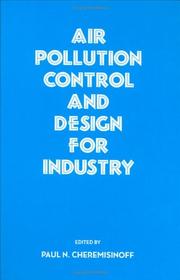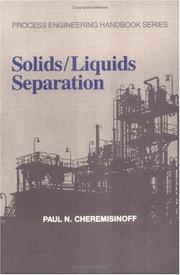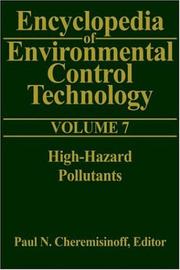| Listing 1 - 10 of 37 | << page >> |
Sort by
|
Book
ISBN: 0801465982 9780801465987 9780801450976 0801450977 9780801465543 1322505225 Year: 2012 Publisher: Ithaca : Cornell University Press,
Abstract | Keywords | Export | Availability | Bookmark
 Loading...
Loading...Choose an application
- Reference Manager
- EndNote
- RefWorks (Direct export to RefWorks)
When the First Crusade ended with the conquest of Jerusalem in 1099, jubilant crusaders returned home to Europe bringing with them stories, sacred relics, and other memorabilia, including banners, jewelry, and weapons. In the ensuing decades, the memory of the crusaders' bravery and pious sacrifice was invoked widely among the noble families of western Christendom. Popes preaching future crusades would count on these very same families for financing, leadership, and for the willing warriors who would lay down their lives on the battlefield. Despite the great risks and financial hardships associated with crusading, descendants of those who suffered and died on crusade would continue to take the cross, in some cases over several generations. Indeed, as Nicholas L. Paul reveals in To Follow in Their Footsteps, crusading was very much a family affair. Scholars of the crusades have long pointed to the importance of dynastic tradition and ties of kinship in the crusading movement but have failed to address more fundamental questions about the operation of these social processes. What is a "family tradition"? How are such traditions constructed and maintained, and by whom? How did crusading families confront the loss of their kin in distant lands? Making creative use of Latin dynastic narratives as well as vernacular literature, personal possessions and art objects, and architecture from across western Europe, Paul shows how traditions of crusading were established and reinforced in the collective memories of noble families throughout the twelfth and thirteenth centuries. Even rulers who never fulfilled crusading vows found their political lives dominated and, in some ways, directed by the memory of their crusading ancestors. Filled with unique insights and careful analysis, To Follow in Their Footsteps reveals the lasting impact of the crusades, beyond the expeditions themselves, on the formation of dynastic identity and the culture of the medieval European nobility.
Social history --- Families of military personnel --- Nobility --- Upper class families --- Crusades --- Military families --- Families --- Soldiers --- Noble class --- Noble families --- Nobles (Social class) --- Peerage --- Upper class --- Aristocracy (Social class) --- Titles of honor and nobility --- Church history --- Middle Ages --- Chivalry --- History --- Influence. --- Europe --- Social conditions
Book
ISBN: 9781421404257 1421404257 Year: 2012 Publisher: Baltimore, Md The Johns Hopkins University Press
Abstract | Keywords | Export | Availability | Bookmark
 Loading...
Loading...Choose an application
- Reference Manager
- EndNote
- RefWorks (Direct export to RefWorks)
History of civilization --- World history --- anno 1100-1199 --- anno 1200-1299 --- anno 1000-1099 --- Middle East --- Crusades --- Influence. --- Historiography. --- In literature. --- Historiography --- In literature

ISBN: 082479057X Year: 1993 Publisher: New York (N.Y.) : Dekker,
Abstract | Keywords | Export | Availability | Bookmark
 Loading...
Loading...Choose an application
- Reference Manager
- EndNote
- RefWorks (Direct export to RefWorks)
Presents current methods for controlling air pollution generated at stationary industrial sources and provides complete coverage of control options, equipment and techniques. The main focus of the book is on practical solutions to air pollution problems.
Air--Pollution intérieure --- Indoor air pollution --- Luchtverontreiniging in huis --- Pollution de l'air intérieure --- Verontreiniging [Lucht] in huis --- Flue gases --- Indoor air pollution. --- Purification. --- Luchtvervuiling --- Luchtvervuiling : beheer --- 504.220 --- Air --- Sick building syndrome --- Purification of flue gases --- Purification --- Pollution, Indoor --- Pollution
Book
ISBN: 047193643X 9780471936435 Year: 1992 Publisher: London: Chancery Law Publ,
Abstract | Keywords | Export | Availability | Bookmark
 Loading...
Loading...Choose an application
- Reference Manager
- EndNote
- RefWorks (Direct export to RefWorks)

ISBN: 1566762464 9781566762465 Year: 1995 Publisher: Lancaster (Pa.): Technomic,
Abstract | Keywords | Export | Availability | Bookmark
 Loading...
Loading...Choose an application
- Reference Manager
- EndNote
- RefWorks (Direct export to RefWorks)
Separation (Technology) --- Separators (Machines) --- Minéralurgie --- Minéralurgie --- Filtration --- Separation solide-liquide
Book
ISBN: 025040236X 9780250402366 Year: 1978 Publisher: Ann Arbor, Mich.: Ann Arbor science,
Abstract | Keywords | Export | Availability | Bookmark
 Loading...
Loading...Choose an application
- Reference Manager
- EndNote
- RefWorks (Direct export to RefWorks)
Book
ISBN: 0250400936 9780250400935 Year: 1975 Publisher: Ann Arbor, Mich.: Ann Arbor science,
Abstract | Keywords | Export | Availability | Bookmark
 Loading...
Loading...Choose an application
- Reference Manager
- EndNote
- RefWorks (Direct export to RefWorks)

ISBN: 0872012387 087201245X 9780872012387 Year: 1995 Volume: 9 Publisher: Houston (Tex.): Gulf,
Abstract | Keywords | Export | Availability | Bookmark
 Loading...
Loading...Choose an application
- Reference Manager
- EndNote
- RefWorks (Direct export to RefWorks)
Air --- Air quality management. --- Factory and trade waste --- Environmental geotechnology. --- Chemical spills. --- Hazardous wastes --- Hazardous substances --- Industrial toxicology. --- Storage tanks --- Pollution. --- Pollution --- Measurement. --- Environmental aspects. --- Health aspects. --- Design and construction. --- Management. --- Environmental Sciences and Forestry --- Environmental Sciences and Forestry. --- Reference Works. Encyclopaedias --- Subject Encyclopaedias --- Déchets --- Environnement --- Systèmes d'aide-mémoire --- Déchets --- Systèmes d'aide-mémoire --- Recyclage (déchets, etc.) --- Air - Pollution. --- Air - Pollution - Measurement. --- Factory and trade waste - Environmental aspects. --- Hazardous wastes - Environmental aspects. --- Hazardous substances - Environmental aspects. --- Hazardous substances - Health aspects. --- Storage tanks - Design and construction. --- Storage tanks - Environmental aspects. --- Hazardous substances - Management.
Book
ISBN: 1009051199 1009051393 1009042742 1316517616 Year: 2023 Publisher: Cambridge : Cambridge University Press,
Abstract | Keywords | Export | Availability | Bookmark
 Loading...
Loading...Choose an application
- Reference Manager
- EndNote
- RefWorks (Direct export to RefWorks)
In accounts of Chinese history, the Western Zhou period has been lionized as a golden age of ritual, when kings created the ceremonies that underlay the traditions of imperial governance. In this book, Paul Nicholas Vogt rediscovers their roots in the vagaries of Western Zhou royal geopolitics through an investigation of inscriptions on bronze vessels, the best contemporary source for this period. He shows how the kings of the Western Zhou adapted ritual to create and retain power, while introducing changes that affected later remembrances of Zhou royal ritual and that shaped the tradition of statecraft throughout Chinese history. Using ritual and social theory to explain Western Zhou history, Vogt traces how the traditions of pre-modern China were born, how a ruling dynasty establishes and holds on to power, how religion and politics can support and restrain each other, and how ancient peoples made, used, and assigned meaning to art and artifacts.
Ancestor worship --- Ancestor worship. --- Christianity. --- China --- History. --- Ancestor cult --- Dead, Worship of the --- Worship, Ancestor --- Cults --- Dead --- Ancestral shrines --- Religious aspects --- History --- Social life and customs --- Kings and rulers
Book
ISBN: 1856300056 Year: 1991 Publisher: London : Chancery law publishing,
Abstract | Keywords | Export | Availability | Bookmark
 Loading...
Loading...Choose an application
- Reference Manager
- EndNote
- RefWorks (Direct export to RefWorks)
| Listing 1 - 10 of 37 | << page >> |
Sort by
|

 Search
Search Feedback
Feedback About UniCat
About UniCat  Help
Help News
News